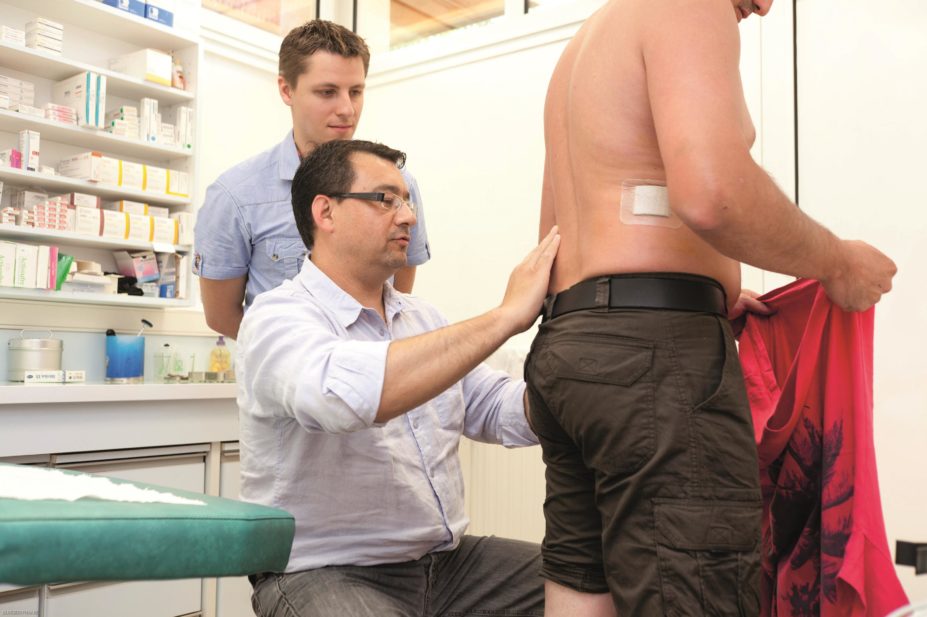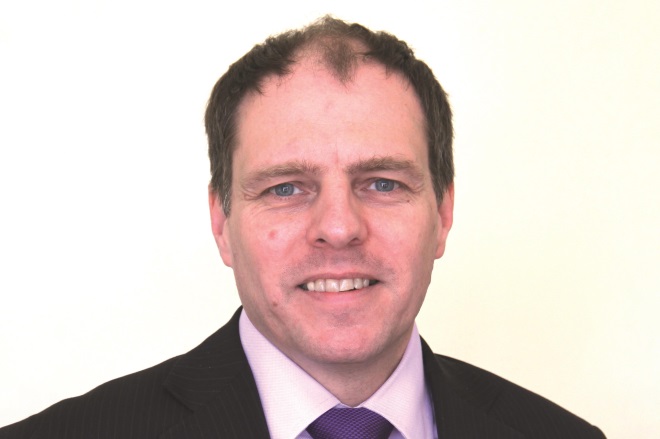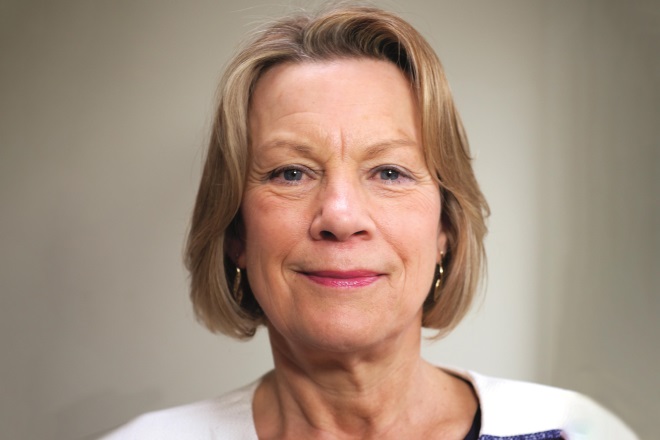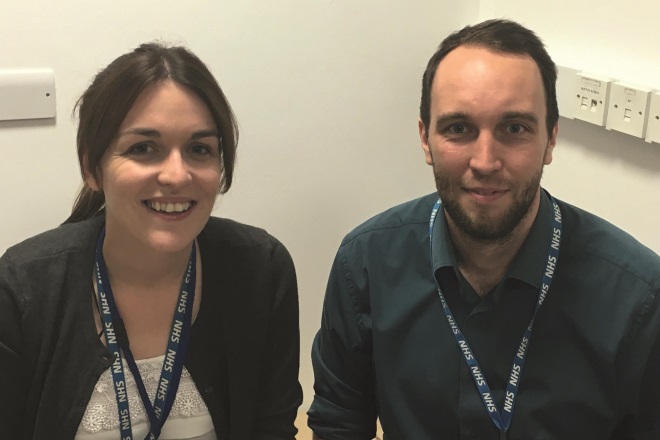
Phanie / Alamy Stock Photo
Eager future pharmacists have been benefiting from work experience in the community and hospital for many years, while employers seize the chance to employ enthusiastic workers who may be inspired to work for their companies one day.
Pharmacy’s newest career option — primary care — is now taking the opportunity to entice students into considering a career in the sector.
Day visits from university
For several years, the pharmaceutical public health team in Dudley, West Midlands, has offered day-long placements in primary care to pharmacy students from the universities of Keele and Birmingham on an ad-hoc basis. However, starting in 2015–2016, Dudley clinical commissioning group (CCG) formally agreed to offer a one-day placement to all fourth-year pharmacy students at the University of Birmingham.
“The students are issued a workbook to follow during the day — activities include how to conduct a clinical audit, observing consultations undertaken by practice-based pharmacists and other healthcare professionals, and learning how repeat prescriptions are managed,” says Clair Huckerby, pharmaceutical adviser and medicines optimisation lead for the CCG. “It is intended to develop their understanding of how a practice-based pharmacist works.”
Feedback from the students on the experience has been positive. “It was a good opportunity to see part of pharmacy that I wasn’t previously aware of,” says George Wild, who has just finished the third year of a pharmacy degree at the University of Birmingham. He completed a half day in a GP practice during his first year at university and a full day during his third year. “We learnt a lot during our placements — from learning about drug costs and clinical audits, to offering feedback to the practice pharmacists on their consultation skills. It has given me food for thought regarding my potential options after registration.”

Source: Courtesy of George Wild
Pharmacy student George Wild says spending time in a GP practice helped him consider his options for after registration
Such a significant student training programme is no small undertaking for the CCG but, for Huckerby, it was worth the effort. “I am passionate about pharmacy workforce development,” she says. “It can be challenging to get pharmacists of the right calibre to work in primary care. Pharmacists whose experience is mainly from community pharmacy can often lack clinical skills. As for hospital pharmacists, while their clinical skills are normally good, we often find they lack the ability to make autonomous decisions, which are necessary in primary care.
“If we can expose them at undergraduate level, we have a better chance of attracting and developing the right people.” Indeed, Huckerby adds, the plan for the future is to develop the training programme to include pharmacy students from other years of the pharmacy degree.
Two-part preregistration placement
A preregistration training programme in Ealing, west London, involving a daily 50-50 split between general practice and community pharmacy, has just begun its third year. Graham Stretch, senior clinical pharmacist for the Ealing GP Federation, was working jointly in general practice and community pharmacy when he came up with the idea. He developed the training programme after promising experience of general practice to his preregistration trainee.
His trainee works in a community pharmacy in the mornings and in general practice during the afternoon. Each week, they spend one session doing patient-facing work with a pharmacist (for example, doing a care home ward round), one session observing a GP in clinic and three sessions helping pharmacy technicians in the surgery with repeat prescription and medicines management.
“Spending time with GPs changes the way the students view the world of healthcare,” Stretch believes. “You can follow patients across settings, seeing them both in a clinic and at the pharmacy counter, and the trainees benefit hugely from that experience. General practice provides a rich environment for multidisciplinary learning — and it is one that we must develop and replicate at undergraduate and preregistration level if we are going to be successful at developing general practice pharmacy as a career option.”

Source: Courtesy of Graham Stretch
Senior clinical pharmacist Graham Stretch supervises a trainee who is splitting their preregistration year between placements in general practice and community pharmacy
Stretch also offers summer internships to students and has accommodated many ad-hoc requests from students to shadow him in his clinics. In 2016, he will host, for the second time, a formal dissertation group of pharmacy students from the University of Reading. “We need to expose third-year pharmacy students to this career option — before they start forming ideas of where they want to work and applying for preregistration positions,” he notes.
Judith Owen, who has just finished Stretch’s preregistration training, speaks positively of her experience: “My preregistration year put me at an advantage compared with those who worked only in community pharmacy. I got a well-rounded understanding of how primary care works behind the scenes — seeing where the problems and delays originate, as well as how processes can work effectively. Also, through screening letters from specialists and observing GP prescribing, I got a better understanding of why medicines are used than by simply viewing prescriptions — and this helped during my registration assessments.”
Three-part preregistration placement
From August 2016, six preregistration trainees in North Wales will experience community, hospital and primary care pharmacy as part of an integrated training programme run by Betsi Cadwaladr University Health Board and pharmacy chain Vittoria Healthcare. From the third month of their preregistration year, the trainees will spend two days a week each in a hospital and community pharmacy, with every Wednesday in primary care.
“The role of the pharmacist has changed so much,” says Alwen Jones Nicholson, Betsi Cadwaladr’s education and training pharmacist. “Our aim is to provide a well-rounded training programme that offers insight and experience of pharmaceutical care in all three sectors of pharmacy. We anticipate this will allow trainees to develop a better understanding and appreciation of the patient journey, with improved communication between the various healthcare settings.”
Gerald Thomas, director of Vittoria Healthcare, adds: “I was keen from the first time I heard about the programme. I did the split preregistration course at Bradford and found the experience invaluable. Pharmacists will see all sides of the patient journey and will get a better appreciation of how a decision in one setting can affect another.”
“In the past we have had trainees who have done a six-month split between hospital and community,” Jones Nicholson explains, “but the two training programmes were separate. As a result, the students seemed to be trying to complete both programmes during a 12-month period, which proved difficult. We were keen to avoid this.”
So began a discussion between representatives from all three pharmacy sectors to develop an integrated preregistration training experience. “When we started discussing our training programme, we realised that a lot of the training is actually similar,” she adds. “Although the activities involved are slightly different, the skills that need to be developed are the same.”
Thomas advocates the benefits of collaboration: “As a group, we met regularly over the past 12 months to help iron out any difficulties that arose. This is a steep learning curve and there may still be things that we haven’t anticipated but, by keeping an open mind and being flexible, it shows what you can achieve when you’re prepared to work together.”
Recruiting
Betsi Cadwaladr piloted an extensive assessment process when recruiting into its integrated training posts. “We needed to hire motivated and focused individuals. The process included an online assessment, some group work, OSCEs [objective structured clinical examinations] and a panel interview,” Jones Nicholson explains.
In 2017, Stretch plans to offer four preregistration placements. “I look for enthusiastic self-starters who are resourceful, resilient and have an interest in research,” he says. “Our first two trainees have been successful because they made the role their own and quickly integrated themselves into the practice and showed what benefit they could add. They also went on to win awards for the projects they undertook.”
Interested?
For those who are interested in getting more experience of GP practice pharmacy, Liz Butterfield, chair of the Primary Care Pharmacy Association and member of the English Pharmacy Board of the Royal Pharmaceutical Society, offers the following advice: “Start by contacting the medicines management team at the CCG or commissioning support unit in your local area. They will be aware of the practice-based pharmacists employed in the area and may be able to suggest someone who you can shadow.”

Source: Courtesy of Liz Butterfield
Liz Butterfield suggests that pharmacy students interested in placements in primary care should contact their local clinical commissioning group
Owen adds: “Get in contact with surgeries in your area and ask for work experience — just to learn how they operate. That way, you can start to determine how you can help them.
“Also, read all of the emails you receive about potential jobs — or you may miss the interesting opportunity you were looking for.”
A new model for the future
A possible model for future service delivery is being pioneered in Salford, Greater Manchester. Salford clinical commissioning group have provided five years of funding for a team of 23 pharmacists to provide a clinical service to all of its 46 GP practices. The team will be employed by the local hospital, Salford Royal, and most of the team will split their time between hospital wards and GP practices.

Source: Courtesy of Suzanne McDowell and Simon Harrison
Pharmacists Suzanne McDowell and Simon Harrison split their time between primary care and hospital work
“Having spoken to our junior pharmacists, some were interested in working in primary care but felt it was too early in their careers to leave hospital and specialise in a specific area,” explains Lindsay Harper, the hospital’s chief pharmacist. “This model allows them to gain experience in both areas; plus… it protects their NHS terms and conditions.”
All pharmacists can expect to be involved with medicines reconciliation following hospital discharge, medication review and clinical audits, and will have some involvement with repeat prescribing. “We will also be tailoring the service provided to each practice based on a review of prescribing patterns, and on what the GPs themselves feel will be of benefit,” Harper adds. Having a GP advocate to support the plan has been essential, she says, since they fully understand the priorities and the politics of primary care.
What skills and experiences were the hospital looking for when hiring pharmacists into their new team? “A large part of the job will be medicines reconciliation on discharge; pharmacists with experience on admissions wards already have these skills so will be able to apply them in primary care,” Harper explains. “We also need our pharmacists to be able to review medicines and suggest what needs to be started or stopped, which is already part of their duties on the wards.”
Simon Harrison, one of the pharmacists appointed to the post, says: “Lots of healthcare is moving towards primary care. I saw this as a good opportunity to experience primary care while keeping my hospital post. I hope I will develop knowledge and skills that will help in both jobs.”
Another pharmacist, Suzanne McDowell, notes: “We see a lot of patients admitted to hospital with issues that have been missed in the community. I hope we can impact on these as well.”
Reading this article counts towards your CPD
You can use the following forms to record your learning and action points from this article from Pharmaceutical Journal Publications.
Your CPD module results are stored against your account here at The Pharmaceutical Journal. You must be registered and logged into the site to do this. To review your module results, go to the ‘My Account’ tab and then ‘My CPD’.
Any training, learning or development activities that you undertake for CPD can also be recorded as evidence as part of your RPS Faculty practice-based portfolio when preparing for Faculty membership. To start your RPS Faculty journey today, access the portfolio and tools at www.rpharms.com/Faculty
If your learning was planned in advance, please click:
If your learning was spontaneous, please click:


